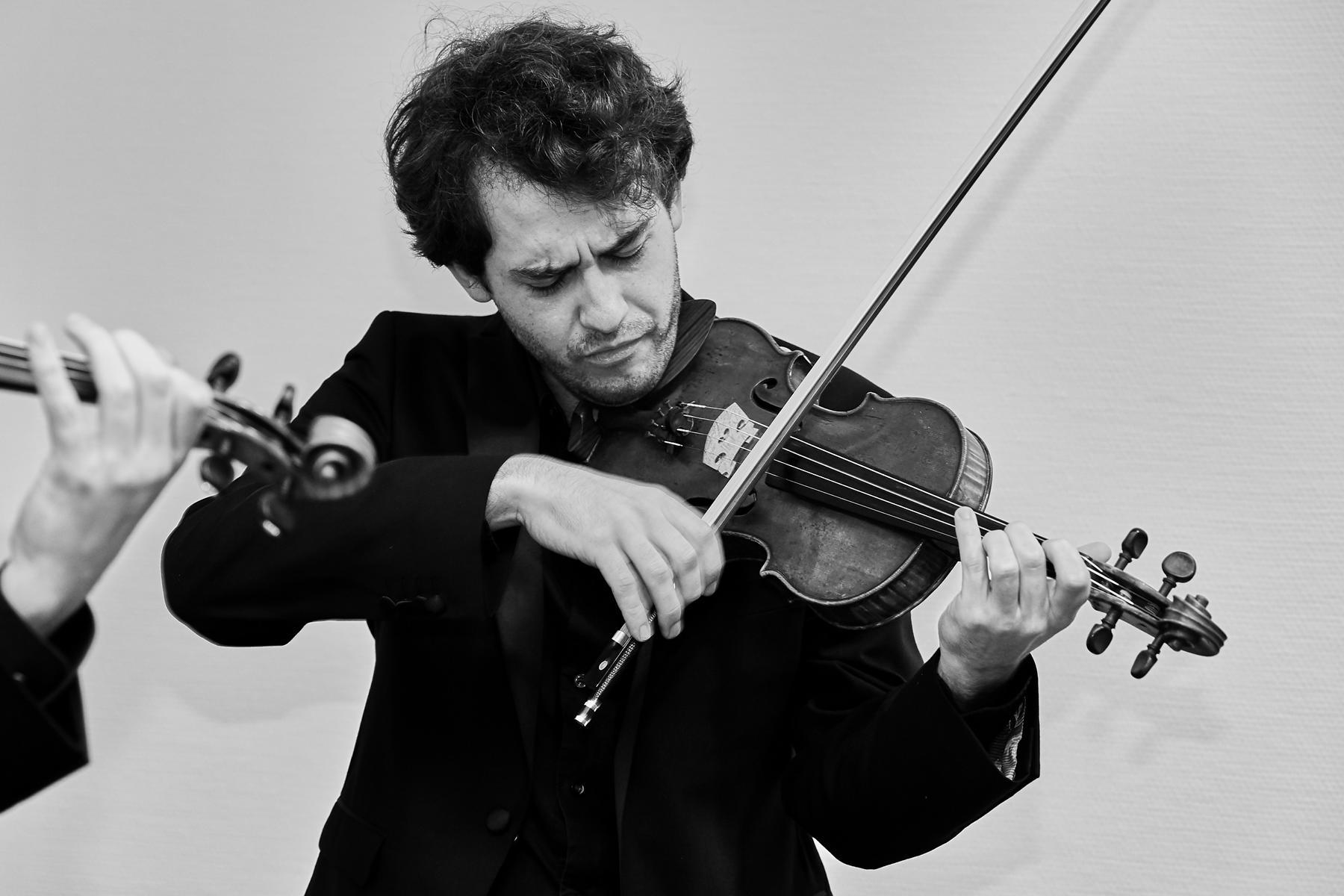
By Landon Hegedus, UChicago Presents
In conversation with Daniel Stoll, second violinist of the vision string quartet:
UChicago Presents: The vision string quartet is known for challenging traditional concert format in that you perform from memory and while standing, among other practices. What motivated you to take this different approach in your performances?
Daniel Stoll: I think that was also one of the main reasons why we formed the quartet. We thought, every soloist performs from memory, and so does every pop musician; why do string quartets have to play with the scores? I think that as a string quartet, the difference is even greater because with four players, there are four music stands between you and the audience, as well as between yourself and the rest of the ensemble. I think it is easier for both the players and the public to make a connection if there are no stands between them.
The real idea to actually make this happen came just two or three days before our very first concert. We never thought that it would be possible to learn the scores by heart, but we were at a masterclass at a castle somewhere in Germany, and there was another string quartet in the room next to ours. That string quartet was playing the same piece that we had been preparing, so we tried to listen through the walls and play along with them – but we didn't have the score in front of us. We realized that it worked, and it was just the fear of playing by heart, and not our inability, that stood in our way. And so we thought, that's more fun to do – let's do that.
UCP: That’s great! In addition to shifting the way you perceive the relationship between yourself and the audience or with the other members of the quartet, has performing from memory also changed your relationship to the music itself?
DS: I'm a middle voice in the quartet, and in my experience, you have to spend much more time practicing to get that middle voice in your brain. I think the advantage is that you practice every bar. Like, if I played a concert with the score with other ensembles, I wouldn't practice the easy parts – but if you have to memorize everything, you have to practice everything. Plus, you have to listen so much more to the others to make the whole thing work. I think it presents the possibility to be more in music than if you have a score in front of you. You have to give 100 percent to play and to listen and to feel, but when I have a score, I need only 20 percent of my energy just to read.
UCP: The vision quartet is also known for presenting original works alongside pieces of the standard quartet repertoire. What stylistic elements or different traditions do you bring into the works you compose for yourselves?
DS: I think we try to bring in something from every kind of music that we love that isn’t just classical. We try to be a band, somehow; we try imitate a singer, a drum set, a bass, a guitar – everything that you have in non-classical music like jazz and pop and rock. We don’t have just one style, I’d say, just sort of a mix of things. Every song is different from the next and has a completely different style, also because not every song by the same composer. With all of our songs, we try to write everything together so that there are many different influences.
Daniel Stoll performs with the vision string quartet at Mandel Hall on Friday, November 8, 2019, as part of the Classic Concerts series.
